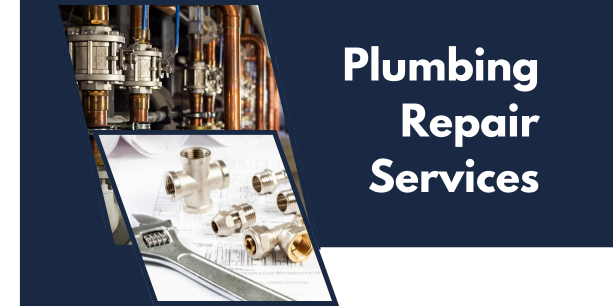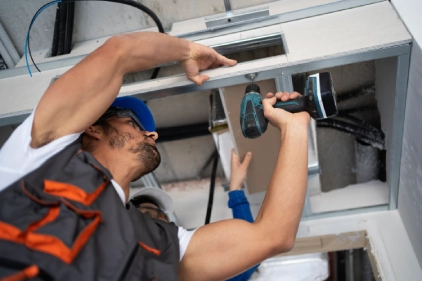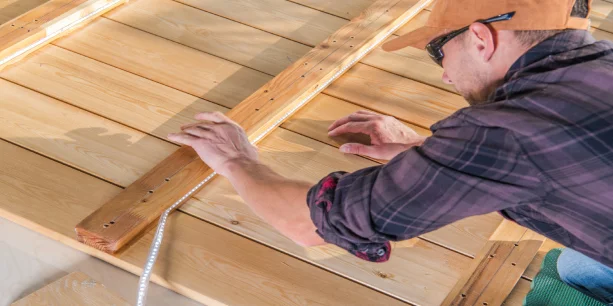General Home Repair: Essential Tips to Save Money and Protect Your Home
Your home is one of your biggest investments, and keeping it in great condition is essential. Over time, every house experiences wear and tear, requiring general home repair to maintain its value, comfort, and safety. Whether it’s fixing a leaky faucet, repairing drywall, or updating an old electrical system, regular maintenance ensures your home remains a secure and welcoming space.
Why General Home Repair Matters
Small repairs might seem insignificant, but ignoring them can lead to bigger, costlier problems. For example, a tiny roof leak can cause major water damage, and a loose floorboard can become a tripping hazard. Regular general home repair not only keeps your home looking good but also prevents structural and functional problems.
Importance of Home Repair
Home repair is vital for maintaining a safe and comfortable living environment. Timely repairs can prevent minor issues from escalating into costly problems, preserving your home’s longevity. Addressing repairs promptly not only enhances your property’s value and aesthetic appeal but also reduces the risk of accidents caused by faulty systems, making it a key aspect of home maintenance.
1. Increases Home Value
A well-maintained home retains its market value. If you plan to sell in the future, buyers are more likely to be interested in a property that has been properly cared for. Keeping up with general home repair can make all the difference when it comes to getting a good price for your home.
2. Enhances Safety
Faulty electrical wiring, leaking gas lines, or weak stair railings pose serious safety hazards. Regular general home repair helps eliminate risks, keeping your home safe for your family and visitors.
3. Saves Money Over Time
Fixing small issues early prevents them from turning into costly disasters. A simple plumbing repair today can save you thousands of dollars in water damage repairs later. Homeowners who stay on top of general home repair spend less on emergency fixes.
Essential General Home Repairs Every Homeowner Should Know
While some repairs require professional assistance, there are many simple fixes homeowners can handle on their own. Here are a few common repairs you should know about: Many of these repairs can be handled by DIY enthusiasts with the right tools and knowledge.
1. Plumbing Repairs
- Fixing leaky faucets to save water and lower bills.
- Unclogging drains to prevent pipe damage.
- Replacing old pipes to avoid leaks and corrosion.
2. Electrical Repairs
- Fixing flickering lights that may indicate a wiring problem.
- Replacing old outlets and switches for safety.
- Installing new light fixtures to brighten up your space.
3. Drywall and Painting
- Repairing cracks and holes to keep walls looking fresh.
- Repainting rooms to enhance the home’s appearance.
- Sealing gaps around windows and doors to improve insulation.
4. Roof and Gutter Maintenance
- Fixing loose or missing shingles to prevent leaks.
- Cleaning gutters to avoid water damage.
- Inspecting attic areas for any signs of moisture.
5. Flooring and Carpentry Repairs
- Repairing or replacing damaged tiles and hardwood floors, which are often small jobs that homeowners can handle.
- Fixing creaky stairs and loose handrails.
- Sealing gaps in doors and windows to keep out drafts.
When to Call a Professional
While many general home repair tasks can be handled with basic tools and skills, some issues require professional expertise. Here are some cases where it’s best to call in an expert:
- Major Electrical Repairs – Handling wiring and circuits incorrectly can be dangerous.
- Plumbing Emergencies – Burst pipes or sewage backups need professional help immediately.
- Roof Repairs – Climbing on the roof is risky and requires special skills.
- Structural Issues – Cracks in the foundation or sagging floors need expert evaluation.
For complex repairs, it is crucial to hire a reliable handyman team to ensure quality and trustworthy work.
1. Benefits of Hiring Service Professionals
Hiring professionals for home repairs offers numerous advantages:
- ✅ Expertise and Efficiency: Professionals have the skills to complete the job safely and effectively.
- ✅ Specialized Tools: They have access to equipment that ensures a high-quality finish.
- ✅ Time and Cost Savings: Professionals can identify and address potential issues before they become major problems.
- ✅ Peace of Mind: You can trust their work to meet safety standards and last longer.
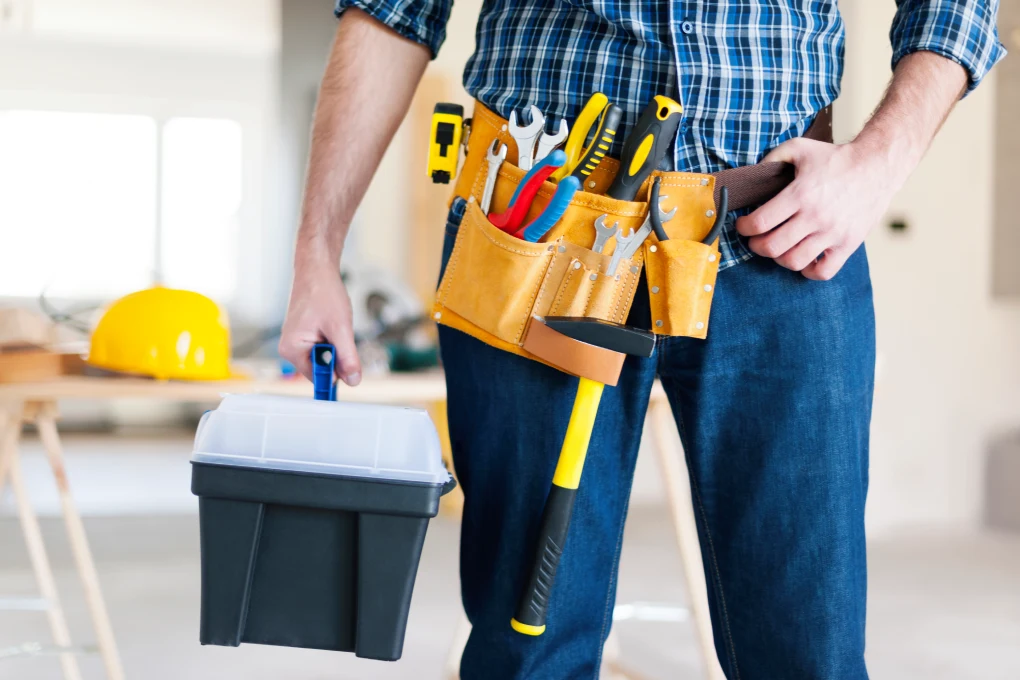
DIY vs. Professional Home Repairs
Knowing when to DIY and when to hire a professional can save you time and money.
Great for DIY: Fixing a loose cabinet door, patching small drywall holes, or unclogging drains.
Leave to the Pros: Replacing electrical panels, fixing major plumbing leaks, or addressing foundation issues.
General home repair is about knowing your limits and seeking help when needed. For more complex repairs, hiring a handyman ensures quality work tailored to your needs. General home repair is about knowing your limits and seeking help when needed. For more complex repairs, hiring a handyman service ensures quality work and reliable maintenance tailored to local homeowner needs.
Keeping Up with Preventative Maintenance
Preventative maintenance is the key to reducing repair costs. Follow these simple tips to keep your home in top condition:
- Inspect Your Home Regularly: Walk around your house every few months to spot potential problems.
- Clean Your Gutters: Clogged gutters can lead to foundation damage and leaks.
- Check for Water Leaks: Even small drips can cause major damage over time.
- Service HVAC Systems: Regular maintenance keeps your heating and cooling systems running efficiently.
Preventative maintenance can also include planning for major renovations to improve home value.
Eco-Friendly Home Repairs: Sustainable Upgrades for a Greener Home
Homeowners today are increasingly looking for ways to make their living spaces more environmentally friendly. Eco-friendly home repairs help reduce energy consumption, lower utility bills, and create healthier indoor environments. Here are some sustainable solutions to consider:
1. Sustainable Materials for Home Repairs
- Bamboo Flooring: A fast-growing, renewable alternative to hardwood.
- Recycled Wood and Composite Materials: Great for furniture, decks, and home renovations.
- Low-VOC Paints: Reduces air pollution inside your home and improves indoor air quality.
- Energy-Efficient Windows: Reduces heat loss and cuts down on heating and cooling costs.
Homeowners in Middle Tennessee can find local service providers offering sustainable materials for home repairs.
2. Water-Saving Plumbing Upgrades
- Low-Flow Toilets: Uses significantly less water per flush.
- Faucet Aerators: Reduces water waste while maintaining strong water pressure.
- Greywater Systems: Recycles water from sinks and showers for use in landscaping.
3. Smart and Energy-Efficient Upgrades
- LED Lighting: Uses up to 80% less energy than traditional bulbs.
- Smart Thermostats: Adjusts heating and cooling automatically to save energy.
- Solar Panels: A long-term investment that reduces reliance on grid electricity.
Technology & Home Repair Innovations: The Future of Home Maintenance
Modern technology is transforming home repairs:
- 📱 Smart Home Devices: Leak detectors, smart locks, and thermostats for better efficiency.
- 🖨️ 3D Printing: Quickly print custom replacement parts.
- 🛠️ Augmented Reality (AR): DIY visualization tools and step-by-step virtual repair guides.
From smart home devices to 3D printing solutions, here’s how modern innovations are making repairs easier and more efficient.
Technological Advancements in Home Repair
The home repair industry has witnessed significant technological advancements in recent years. One notable development is the use of drones for roof inspections, allowing for faster and more accurate assessments of damage. Another innovation is the use of 3D printing for creating custom parts and fixtures, reducing the need for costly replacements. Furthermore, the rise of smart home technology has enabled homeowners to monitor and control their home’s systems remotely, making it easier to detect and address potential issues before they become major problems.
1. Smart Home Devices for Maintenance
- Smart Leak Detectors: Alerts you to leaks before they cause major water damage.
- Security and Surveillance Systems: Helps monitor home safety remotely.
- Smart Locks & Thermostats: Enhances energy efficiency and security.
2. 3D Printing in Home Repairs
- Customized Replacement Parts: Quickly print discontinued or hard-to-find parts.
- Cost-Effective Home Fixes: Reduces the need for expensive custom orders.
3. Augmented Reality (AR) in Home Repair
- DIY Visualization Tools: Apps that let you see how renovations will look before making changes.
- Step-by-Step Virtual Repair Guides: Helps homeowners complete minor repairs with interactive instructions.
Budgeting for Home Repairs: Smart Financial Planning for Homeowners
Home repairs are inevitable, but proper budgeting ensures they don’t become financial burdens. Here’s how to plan ahead and manage your expenses wisely.
Budgeting for Home Repairs.
Budgeting for home repairs is essential to ensure that you have the necessary funds to address unexpected issues. It’s recommended to set aside a portion of your annual budget for home maintenance and repairs. A general rule of thumb is to allocate 1-3% of your home’s value for annual repairs and maintenance. Additionally, consider setting up an emergency fund to cover unexpected expenses. By budgeting for home repairs, you can avoid financial stress and ensure that your home remains in top shape.
1. How Much Should You Budget for Home Repairs?
- Experts recommend setting aside 1% of your home’s value annually for maintenance.
- Older homes or those in extreme climates may require higher budgets.
2. Cost-Effective Home Repair Strategies
- DIY for Small Fixes: Learning basic plumbing or carpentry skills can save thousands.
- Preventative Maintenance: Regular checkups help avoid costly emergency repairs.
- Bulk Material Purchases: Buying materials in advance can reduce costs.
3. Financing Options for Large Repairs
- Home Improvement Loans: Offered by banks and credit unions for big renovations.
- Government Grants & Rebates: Available for energy-efficient upgrades.
- Home Warranty Plans: Covers unexpected repairs and replacements for key systems.
By implementing these budgeting tips, homeowners can stay ahead of repairs without financial stress.
Preparation and Planning for Home Repairs
Preparation and planning are crucial when it comes to home repairs. Before hiring a service professional, make sure to research and gather multiple quotes to compare prices and services. It’s also essential to check the contractor’s licenses, insurance, and reputation to ensure that you’re hiring a reliable and trustworthy professional. Additionally, prepare a list of questions to ask the contractor, such as their experience with similar projects and their approach to addressing potential issues. By being prepared and planning ahead, you can ensure a smooth and successful repair process.
The Role of ROR Home Repair in General Home Maintenance
Taking care of your home doesn’t have to be overwhelming. If you need help with general home repair, ROR Home Repair has experienced professionals ready to handle any task. Whether it’s a minor fix or a major renovation, their team ensures top-notch work and timely service.
At ROR Home Repair, customer satisfaction is a top priority. They offer reliable and affordable home repair services, helping homeowners keep their properties in excellent condition. From electrical repairs to painting and plumbing, their skilled team provides solutions tailored to your needs.
Final Thoughts
Maintaining your home with regular general home repair ensures safety, comfort, and long-term value. Don’t wait until a small issue turns into a big problem—stay proactive and address repairs as they arise. Whether you handle repairs yourself or hire professionals, keeping up with maintenance is the key to a well-functioning home.
If you need assistance with any home repair projects, trust the experts at ROR Home Repair. Visit their website or check out their Facebook page to schedule an appointment and keep your home in great shape!
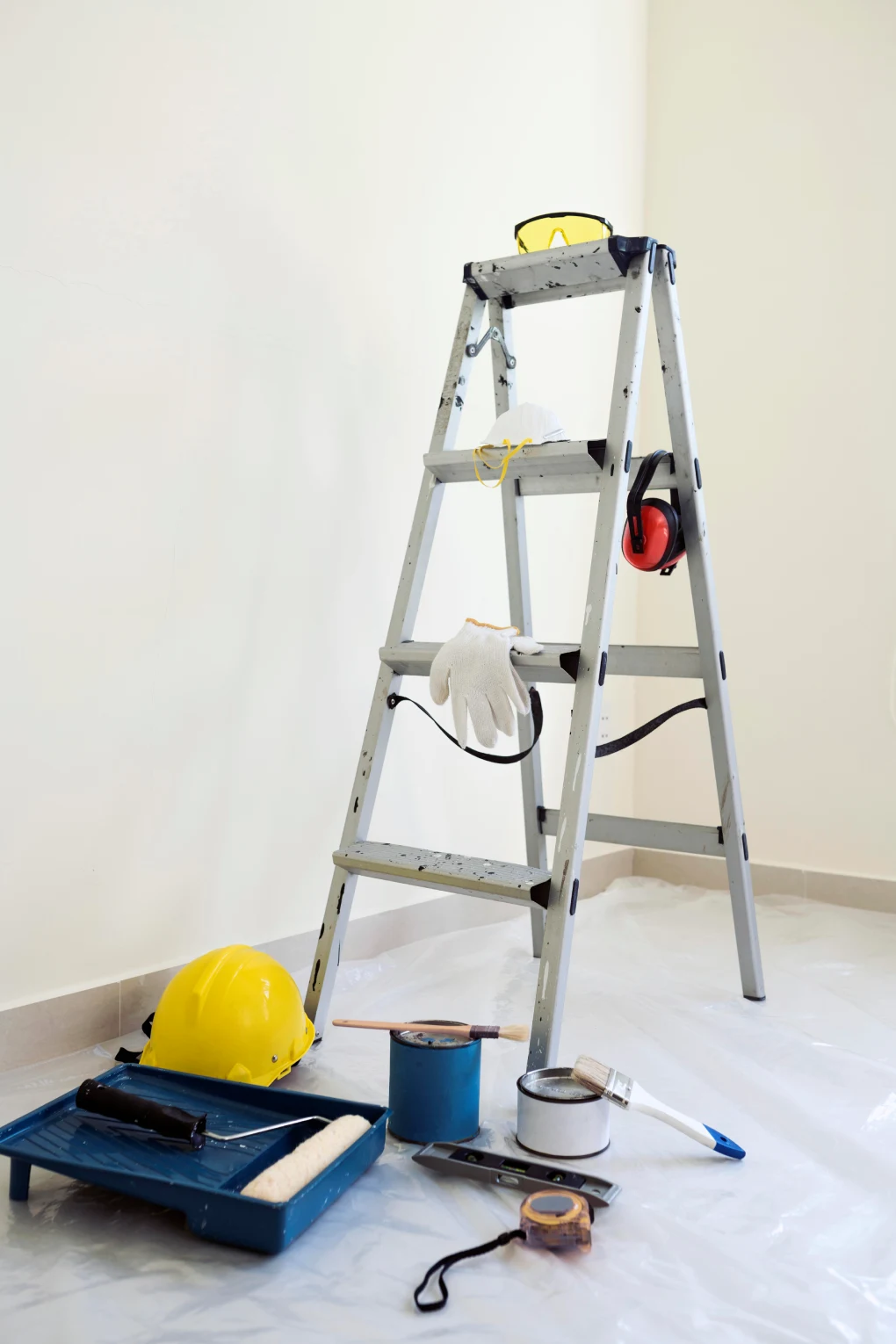
FAQs
1. What Are the First Signs That My Home Needs Repairs?
Common signs include peeling paint, cracks in walls, unusual odors, or high utility bills. Loose floorboards, flickering lights, and low water pressure can also indicate underlying issues. Addressing these early prevents them from worsening over time.
2. How Often Should I Inspect My Home for Repairs?
A monthly check should cover plumbing leaks and HVAC filters, while seasonal inspections should include the roof, gutters, and foundation. An annual deep check of the attic, basement, and insulation ensures long-term upkeep. Regular inspections save homeowners from costly emergency repairs.
3. What Are the Most Common Plumbing Issues Homeowners Face?
Leaky faucets, clogged drains, and running toilets are common. Low water pressure may indicate pipe buildup or leaks. Routine plumbing maintenance helps extend the lifespan of your home’s pipes.
4. How Can I Protect My Home from Weather-Related Damage?
Reinforce windows, clean gutters, and check the roof before storms. In winter, insulate pipes and seal drafts; for summer, maintain the cooling system. Proper seasonal maintenance reduces long-term structural damage.
5. What Are Some Cost-Effective Ways to Maintain My Home?
DIY small fixes, routine maintenance, and energy-efficient upgrades help save money. Buying materials in bulk and learning basic repairs also reduce costs. A little preventative care goes a long way in avoiding major expenses.
6. What Are the Benefits of Installing Smart Home Devices for Maintenance?
Leak detectors prevent water damage, smart thermostats cut energy costs, and security systems enhance safety. Automated lights and sensors improve efficiency, making home maintenance easier. Smart devices provide homeowners with peace of mind and long-term savings.
7. When Should I Hire a Professional Instead of Doing Repairs Myself?
Hire a pro for electrical work, gas lines, roofing, major plumbing, or foundation issues. DIY is great for small repairs, but complex jobs need expert handling to ensure safety and quality. A professional ensures the work meets safety standards and lasts longer.



